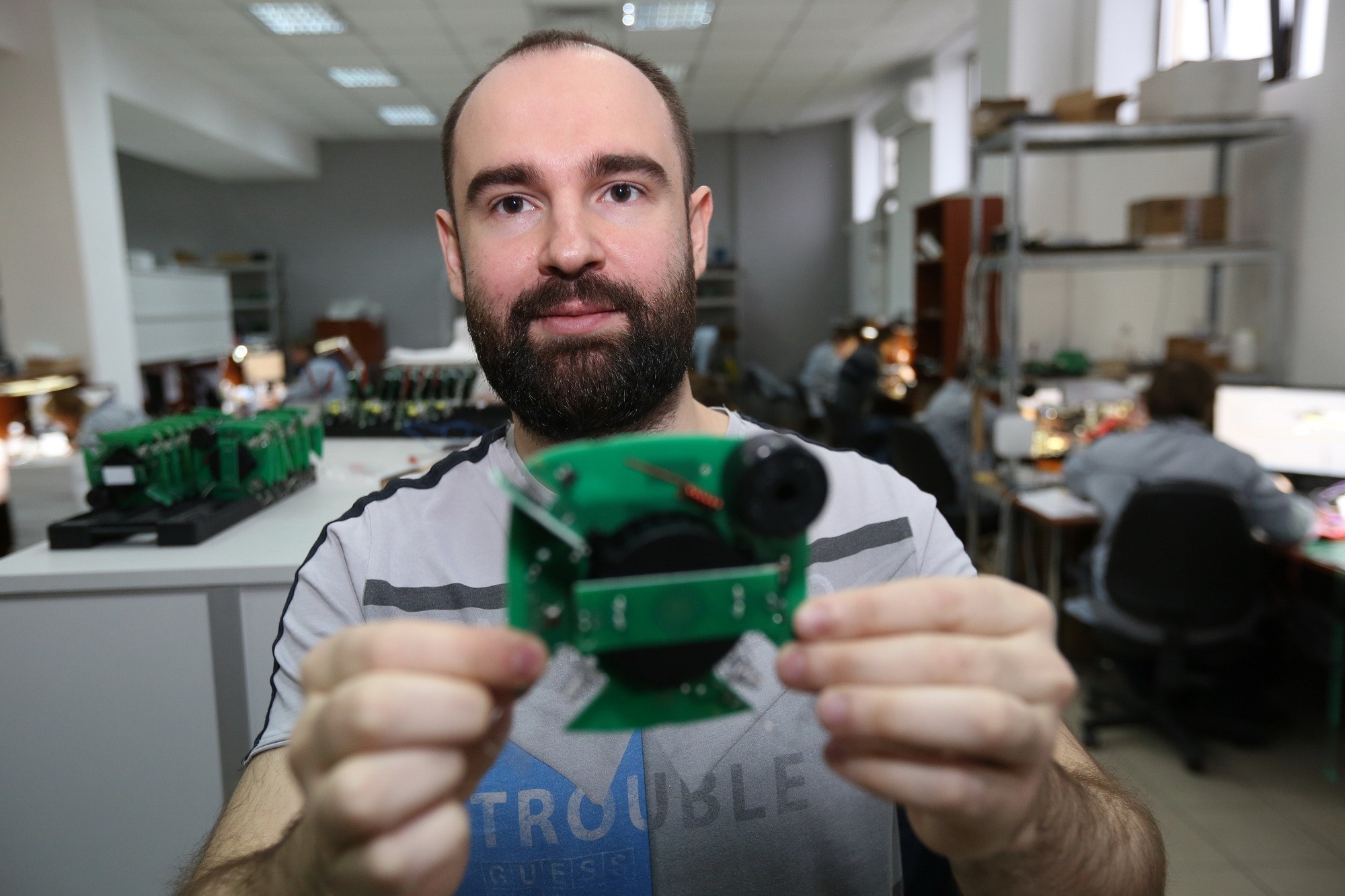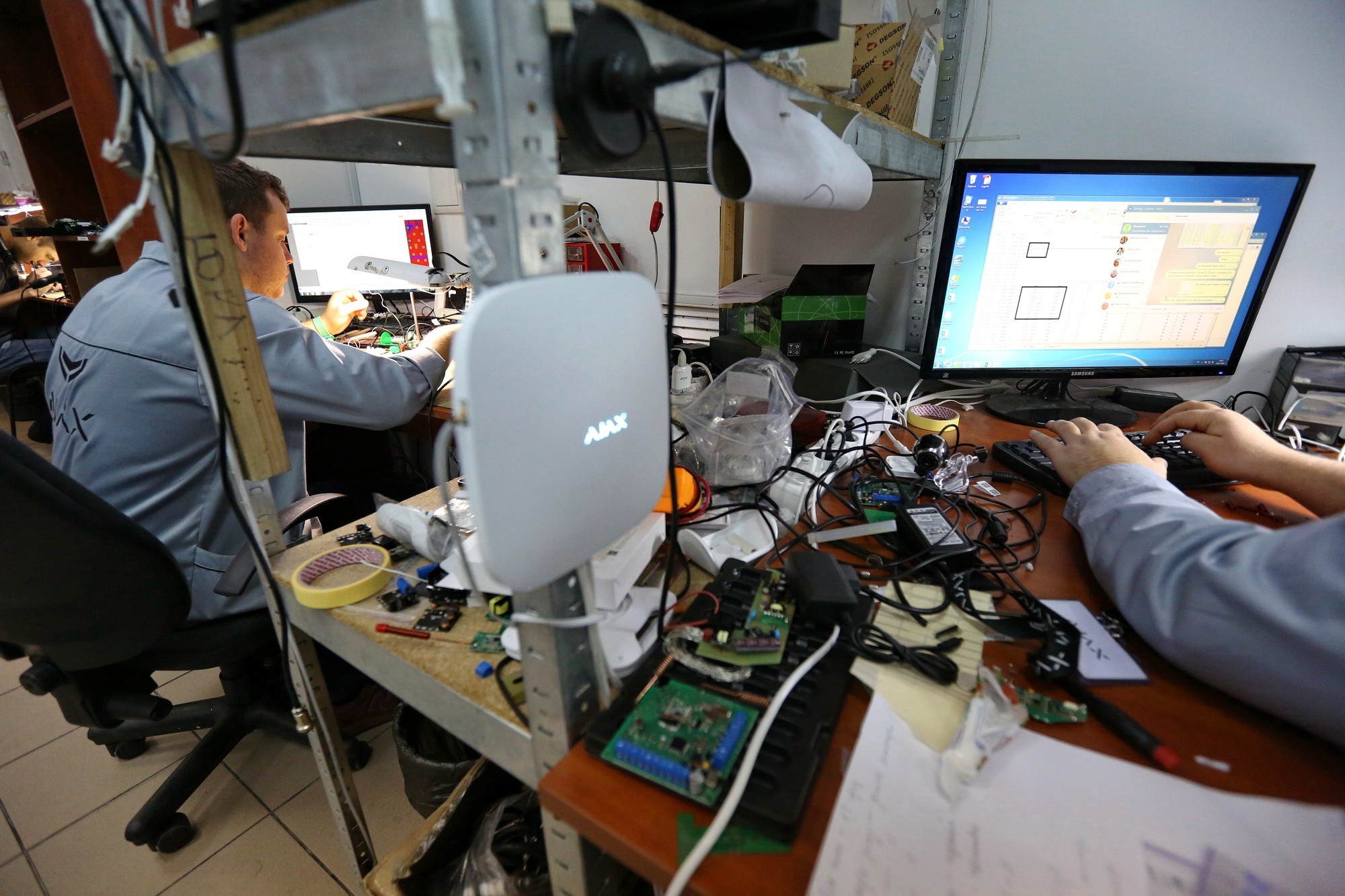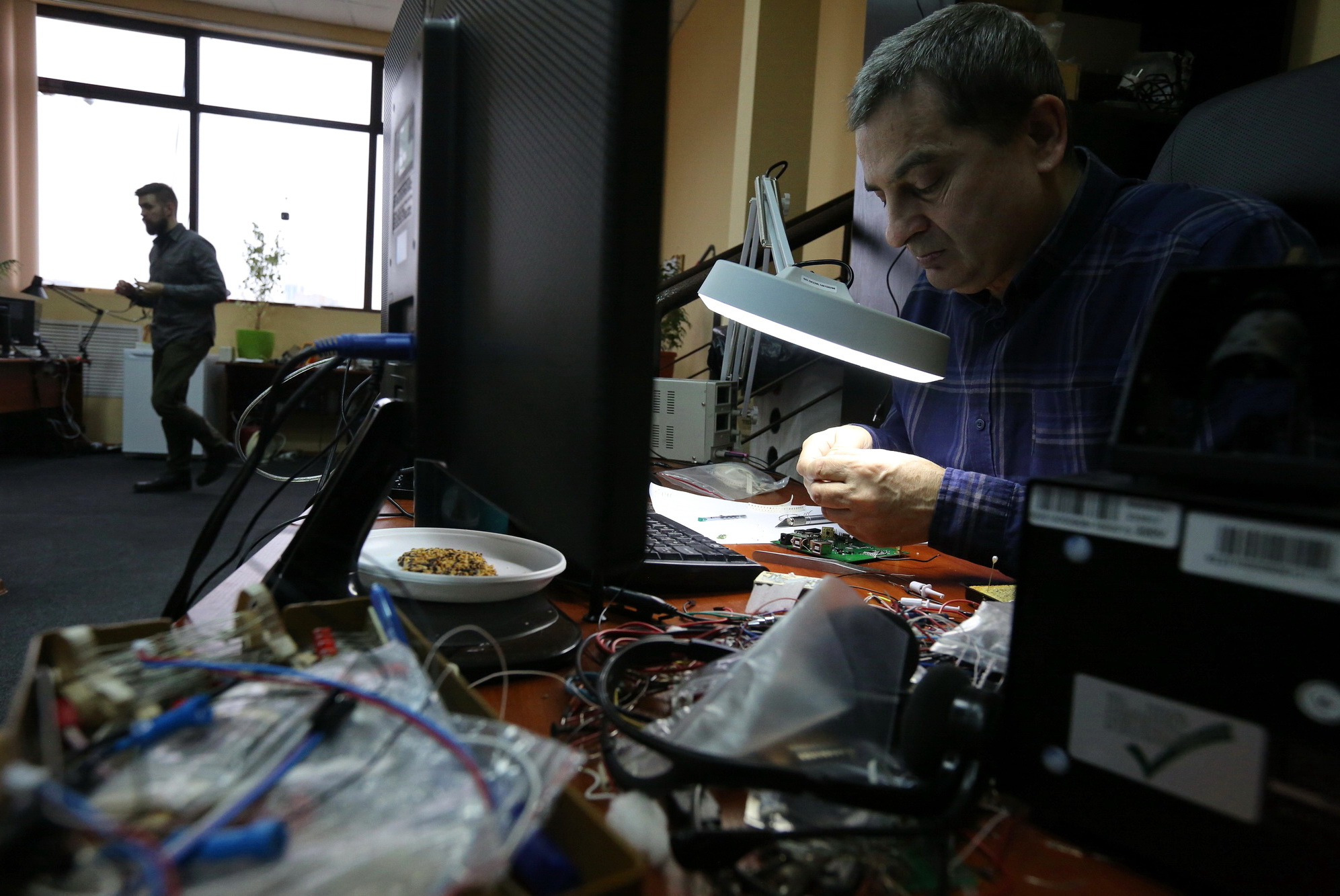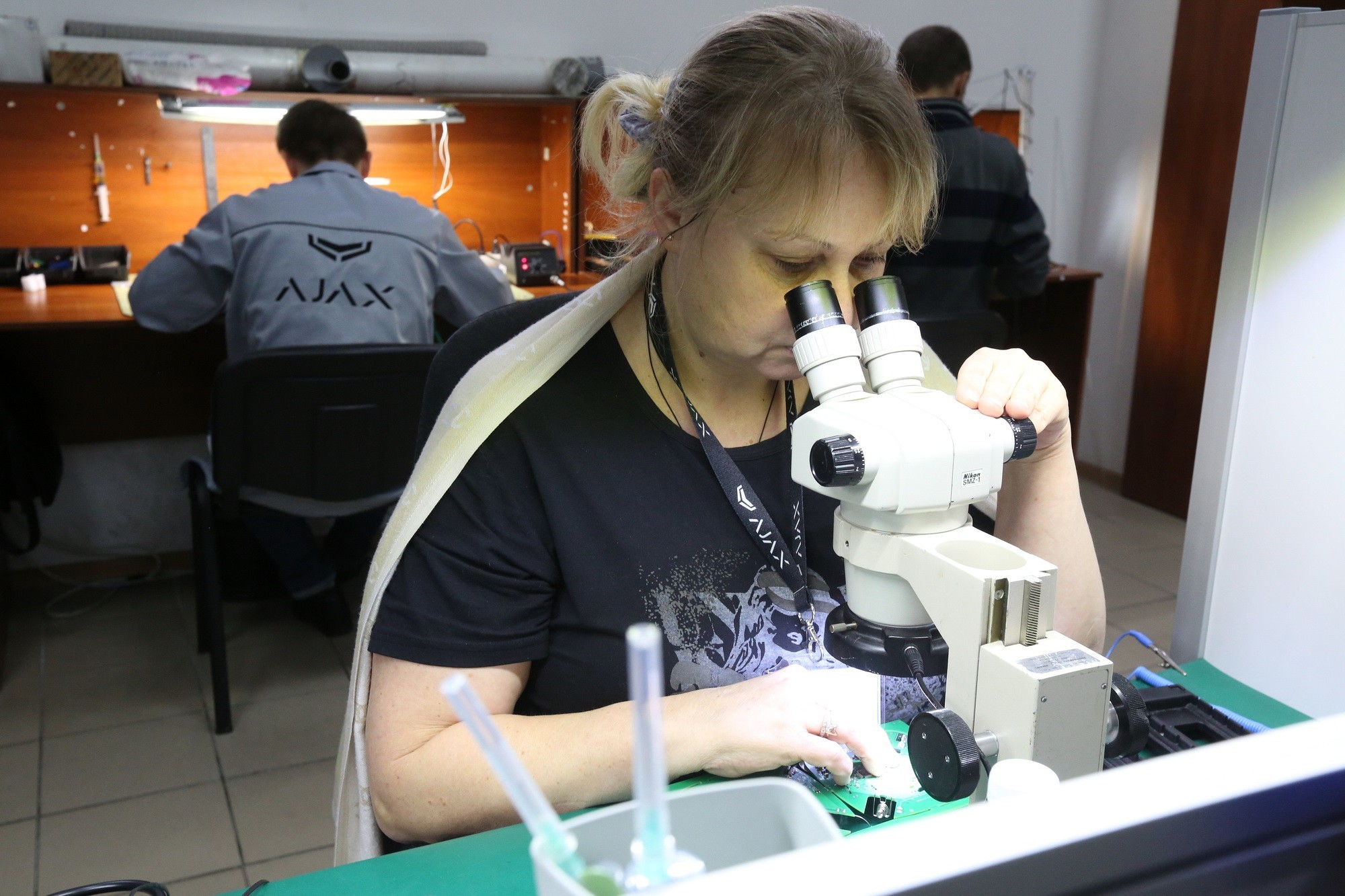In a huge Soviet-style building of a former clothing factory in the north-west part of Kyiv, about hundred workers develop an alarm system, which, according to its inventor Aleksandr Konotopskyi, is “the first step to the automatization” of Ukrainian households.
It has taken Konotopskyi four years to build his wireless security system startup, which has since attracted $1 million in funding from venture capital firm SMRK, hired more than 100 people, and conquered about 30 percent of the Ukrainian market for wireless alarms.
Founded in 2011, Konotopskyi’s company, called Ajax Systems, produces a wireless security system for residential and business premises that includes sensors to detect intruders, fire, and flooding.

Aleksandr Konotopskyi holds an uncased smoke detector in Ajax System’s Kyiv office on Nov. 10. (Volodymyr Petrov)
If triggered, the system sends a notification to the owner’s smartphone, and at the same time a signal is sent to the security agency or firefighters the building is contracted with. When armed, it reacts to human movement but ignores animals or movement caused by draughts.
Installation requires only some wall space for sensors and the system’s central hub collects the info from the devices via Ajax’s own radiotechnology Jeweller (868.0-868.6 MHz). The hub connects to the network via both Ethernet and GSM (GPRS) as a backup channel to exchange data with the Ajax Cloud.
“Wireless technologies will make security systems gain mass appeal,” Konotopskyi said in an interview with the Kyiv Post. “People want a simple smart home they can set up themselves.”

An Ajax Hub, one of the core products of the company, is tested by workers. (Volodymyr Petrov)
Konotopskyi said his Ajax systems evolved naturally from the tech resources the modern world now has.
“Earlier, alarms were operated with keys. Then, keyboards appeared. Now we have smartphones, which gave us cool interfaces,” Konotopskyi said. “This approach is simply more convenient.”
Smart home
The next “big thing,” according to Konotopskyi, is the connection of everyday appliances to the internet, called nowadays the Internet of Things, but for this, homes have to become more secure first.
“Google Home, Amazon Alexa, Apple HomeKit are highly promoted indeed. But there is a huge breach in Siri’s security, for example. In Alexa’s, too.”
Apart from Ukraine, Ajax security units are sold in the European countries, including Norway, Italy, Germany, the Netherlands. In 2017, the sales will start in the U.S., where the company has an office.

A man looks into a magnifier as he develops and assembles small parts of an Ajax security system at the company’s Kyiv office on Nov. 10. (Volodymyr Petrov)
He believes that Ajax can’t compete with big smart home system producers on the American market, but can bite off a piece of the U.S. security appliances market.
In Europe, where the company is ramping up its activities, Ajax can play a more significant role in building up the smart home concept, Konotopskyi said.
Ukraine’s benefits
Still, Ukraine will remain the home base for Ajax. The country is perfect for a security appliances producer: It has skilled engineers, low competition on the labor market, and the rise of crime.
“In Silicon Valley, it would be 10 times more expensive to hire an engineer with the same qualifications we can find in Ukraine,” Konotopskyi said.
He expects the number of Ajax employees to double in a short while.

A woman employee of Ajax Systems examines electronic components under a microscope. (Volodymyr Petrov)
In the past two years, Ukraine saw an increase in the number of home robberies: From 21,982 in 2013 to 27,854 in 2015, according to public records. For Ajax, it means more clients.
“The market here is growing, while in the EU people just buy alarms to get a discount on their insurance,” Konotopskyi said.
Robbers are becoming more skilled in defeating traditional alarm systems, jamming radio and mobile broadcasts, breaking alarms, (and) switching off the electricity, according to Konotopskyi.
“We aren’t defending from some ephemeral threats that may or may not happen,” he said.
Kyiv Post staff writer Denys Krasnikov can be reached at [email protected].
